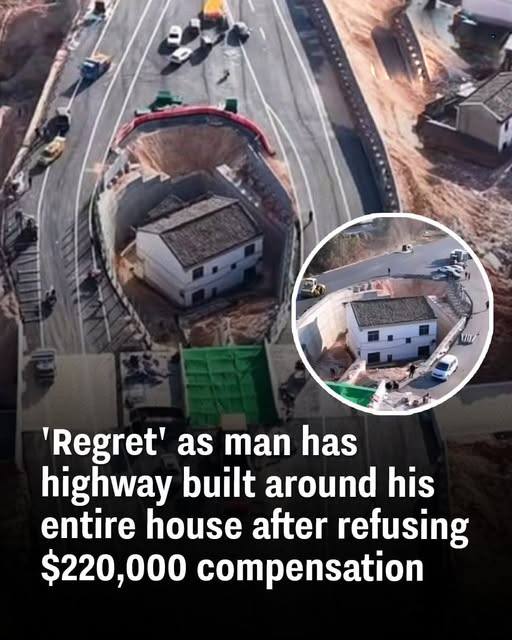In China, a growing and visually striking phenomenon known as a “nail house” is drawing both national attention and international curiosity. The term refers to properties where owners refuse to sell or vacate, even when large-scale construction projects—often government-backed—are in full swing.

These homes remain stubbornly in place, sticking out like nails that just won’t go down, despite mounting pressure. It’s become a metaphor for personal resistance in a country where property rights have long been a complicated issue. Although China officially abolished private land ownership decades ago, a modern property law enacted in 2007 gave homeowners a bit more power. However, the government still holds significant control over land development, especially when it comes to major infrastructure. That context sets the stage for the unusual story of Ye Yushou, a tofu vendor in Jinxi County, Jiangxi Province.
Ye became a household name in China when he declined a compensation offer from the government during the construction of the G206 highway. He was offered 1.6 million yuan—about $220,000—along with two new homes. But in 2022, Ye turned down the deal, holding out for 2 million yuan and three homes, believing his land was worth more. Instead of continuing negotiations, the government made an unexpected move—they built the highway around his house. Today, Ye’s two-story home stands isolated in the middle of a functioning highway, surrounded by moving traffic and concrete lanes.
Locals have nicknamed it “The Eye of Jinxi,” and it’s easy to see why. The house appears like a solitary eye peeking out from a sea of modern development. Dust fills the air, the noise from passing trucks is nonstop, and vibrations from heavy vehicles are a part of daily life. A narrow access road was created so Ye could come and go, but the reality of living in the middle of a highway has proven far from ideal. As the road officially opened to the public during China’s Spring Festival—a peak travel time—Ye publicly admitted his regret. “I asked for more, and now I’m stuck,” he said to people who stop to take pictures or simply marvel at the unusual sight. He revealed that he had even hired a lawyer from Beijing, spending over $14,000 in legal fees to push for better compensation.
But in the end, that investment did not yield the results he hoped for. In contrast, three of Ye’s neighbors accepted the original compensation offer. Their homes were demolished, and they moved on with their lives. One reportedly became a millionaire after taking the deal at the right moment. Meanwhile, Ye remains where he was—trapped between speeding vehicles and construction dust, his house a symbol of both defiance and what some see as a missed opportunity. Reactions online and among local residents have been divided. Some admire Ye’s resolve, calling him a man of principle who stood up for what he believed was right. Others view his decision as short-sighted or driven by greed. One Reddit user commented, “He thought they couldn’t build the highway without buying his house. He got greedy and found out the hard way.” Another added, “I admire the principle, but living in the middle of a highway? That’s miserable. I’d be terrified every time a truck sped by.” A third person even compared the scene to the animated movie Up, joking, “Grandpa’s probably preparing the balloons as we speak.” Whether you see Ye Yushou as a symbol of resistance or a cautionary tale of overestimating your leverage, there’s no denying his story has become literally and figuratively cemented in Chinese infrastructure. His home now stands as a permanent fixture in the center of a $63 million highway project, a bizarre blend of personal decision and public development. It serves as a striking reminder that sometimes holding out for more doesn’t always result in a better deal. Instead of moving forward with compensation and a fresh start, Ye is left with nothing but regret, a house boxed in by traffic, and the constant hum of engines as his new normal.





